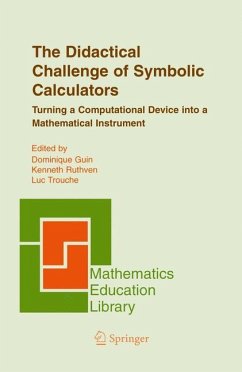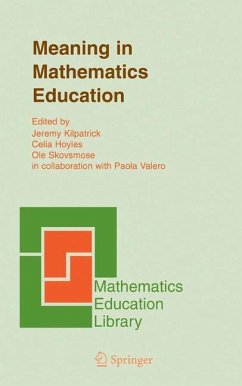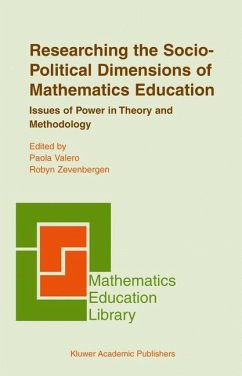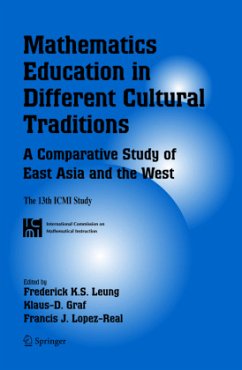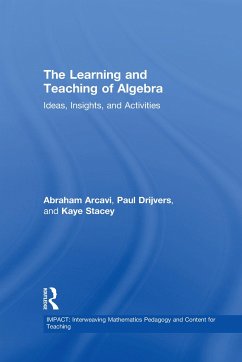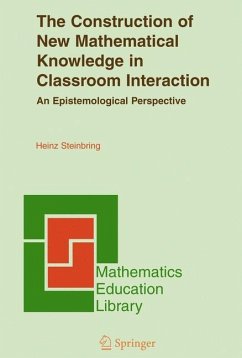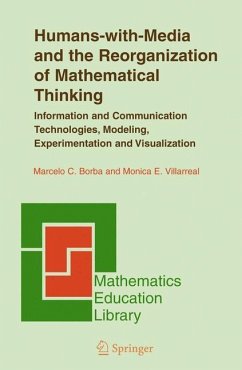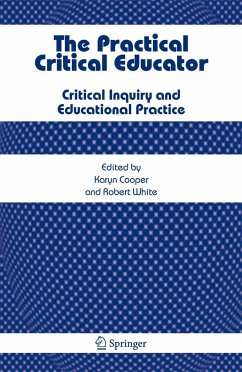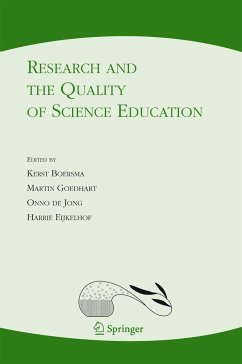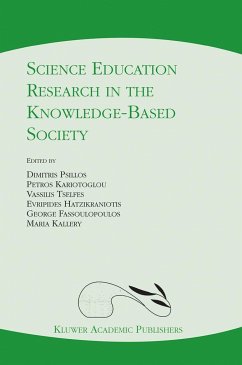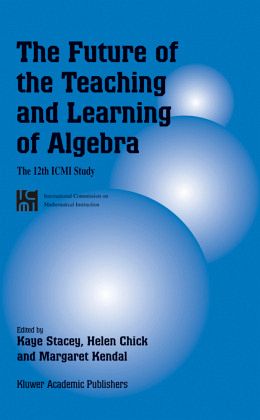
The Future of the Teaching and Learning of Algebra
The 12th ICMI Study
Herausgegeben: Stacey, Kaye; Chick, Helen; Kendal, Margaret
Versandkostenfrei!
Versandfertig in 1-2 Wochen
115,99 €
inkl. MwSt.

PAYBACK Punkte
58 °P sammeln!
This book presents a wide-ranging, international perspective on the state of the field of algebra from invited participants to the 12th ICMI Study conference held in Melbourne, Australia in 2001. The authors are renowned academics from all around the world who have written individual chapters associated with the teaching and learning of algebra that relate to their particular areas of research and teaching expertise. The book includes information about different approaches to the teaching and learning of algebra - from early algebra to tertiary algebra, the impact of tools and technology (including Computer Algebra Systems), the role of symbols and language, teachers of algebra, and the history of algebra.
Kaye Stacey' Helen Chick' and Margaret Kendal The University of Melbourne' Australia Abstract: This section reports on the organisation' procedures' and publications of the ICMI Study' The Future of the Teaching and Learning of Algebra. Key words: Study Conference' organisation' procedures' publications The International Commission on Mathematical Instruction (ICMI) has' since the 1980s' conducted a series of studies into topics of particular significance to the theory and practice of contemporary mathematics education. Each ICMI Study involves an international seminar' the "Study Conference"' and culminates in a published volume intended to promote and assist discussion and action at the international' national' regional' and institutional levels. The ICMI Study running from 2000 to 2004 was on The Future of the Teaching and Learning of Algebra' and its Study Conference was held at The University of Melbourne' Australia fromDecember to 2001. It was the first study held in the Southern Hemisphere. There are several reasons why the future of the teaching and learning of algebra was a timely focus at the beginning of the twenty first century. The strong research base developed over recent decades enabled us to take stock of what has been achieved and also to look forward to what should be done and what might be achieved in the future. In addition' trends evident over recent years have intensified. Those particularly affecting school mathematics are the "massification" of education-continuing in some countries whilst beginning in others-and the advance of technology.





